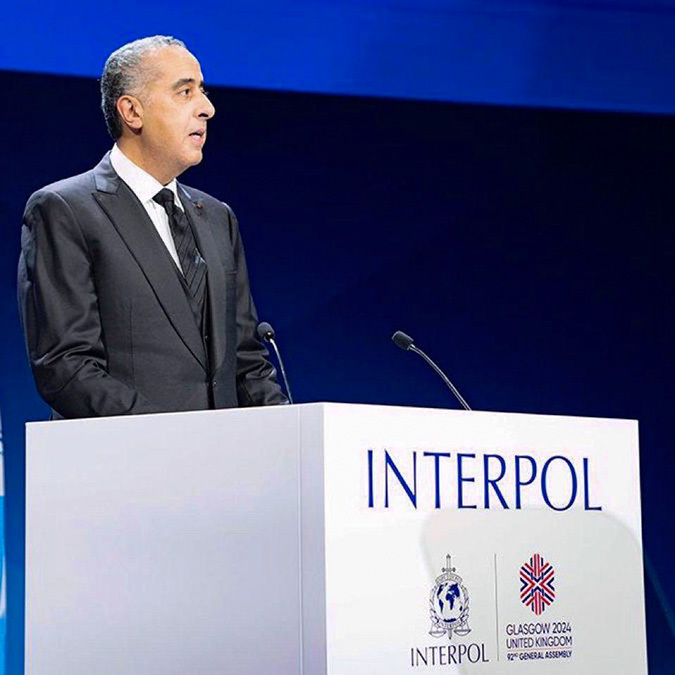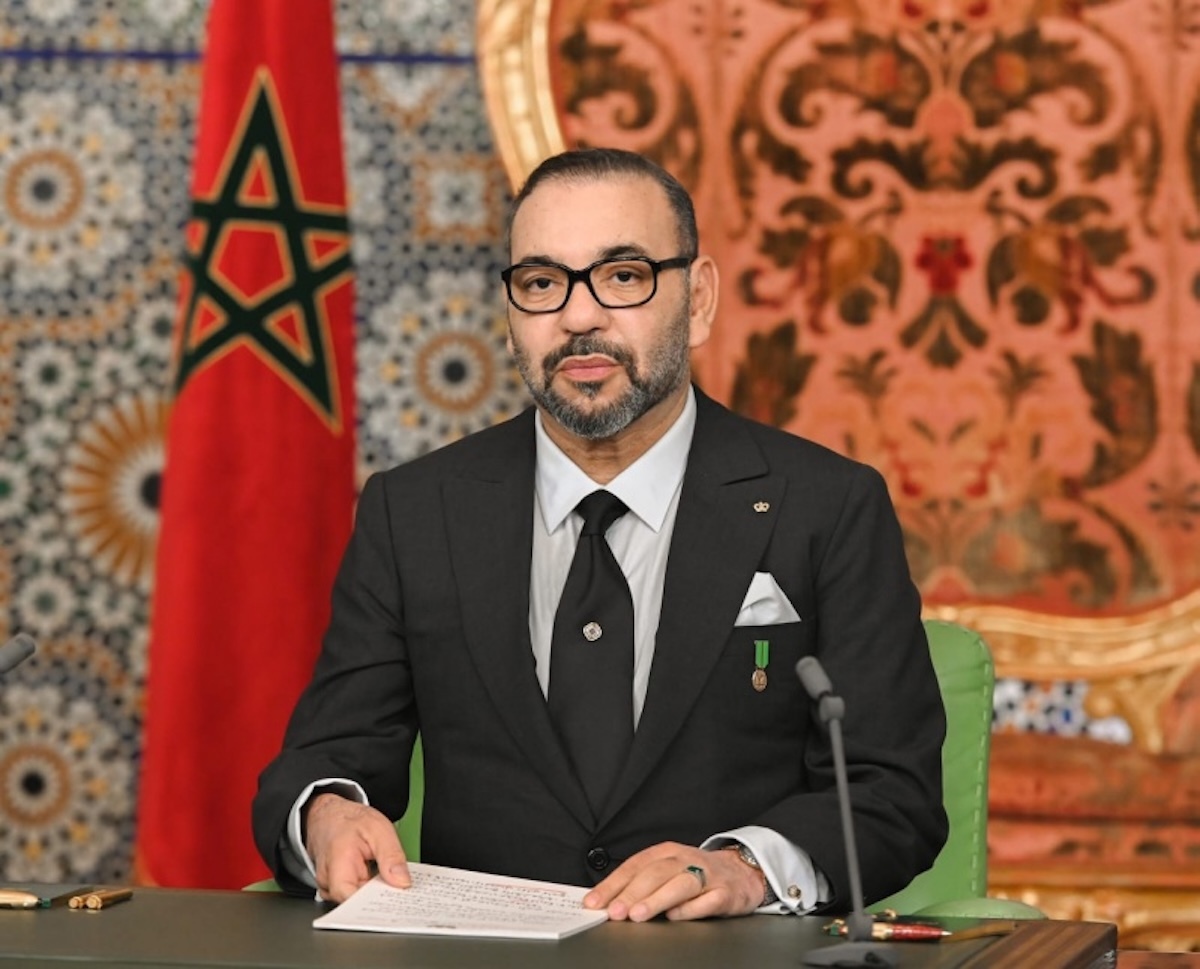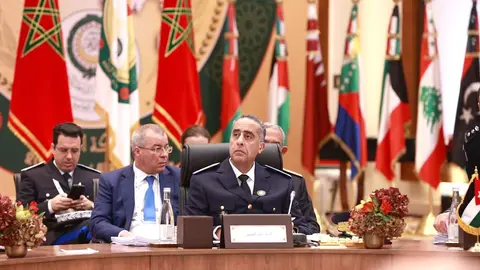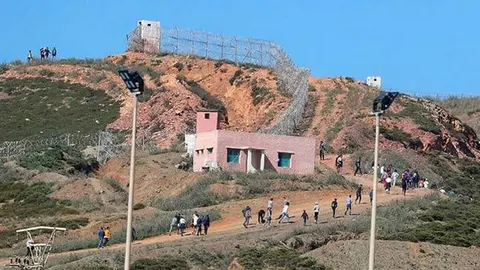Morocco designs its new generation of intelligence for 2030

- New generation 2030
- Coordination for an international model
- An architecture adapted to today's challenges
The report published by the ROCK Institute for Geopolitical and Security Studies, in collaboration with the Quantinel group, positions Morocco as a regional and global benchmark in security and intelligence, capable of building the new generation of 2030 by focusing on coordination between its agencies at both the internal and external levels.
Moroccan intelligence services are not merely an instrument of internal security for the modern state, but a strategic lever for protecting national sovereignty and the country's stability.
Over the decades, these services have demonstrated, especially since 2003, a rapid and effective evolution through the country's various security agencies: the General Directorate of National Security (DGSN), the General Directorate of Studies and Documentation (DGED), the Directorate of Territorial Surveillance (DVT) and the Military Intelligence Directorate (DRM).
Efficient coordination between the various agencies, as well as the constant updating of their legal and technological framework, enables Morocco to arm itself adequately to face and manage the crises and threats of the new millennium.

New generation 2030
Moroccan intelligence, which has always sought to preserve territorial integrity and internal security, has undergone a profound legal and operational transformation during the reign of Mohammed VI.
In an interconnected world full of threats that require a high degree of adaptability as a determining factor of sovereignty, this modernisation is not only a response to technical or diplomatic imperatives, but also a strategic investment in Morocco's legitimacy, credibility, security and resilience.
The challenge on the horizon for 2030 will not only be to protect the territory, but also to anticipate threats in an uncertain technological environment, where data becomes both raw material and a weapon of war. This requires the ability to mobilise the power of intelligence as a lever of global power within the context of an agile regulatory framework and a culture of sovereign innovation.
Over the past two decades, Morocco has demonstrated its ability to combine security and respect for freedoms. The next challenge will be to show that, in the age of AI and quantum computing, it can remain at the forefront of prevention, information control and the defence of national interests, while continuing to inspire confidence among its citizens and partners.
The aim is to maintain a high level of operational efficiency with an evolving legal framework that guarantees fundamental rights and national and international trust. In this regard, Morocco is aware of the importance of aligning itself with international standards: the Budapest Convention, Convention 108+ and specific cooperation agreements with regional and strategic partners, with a view to strengthening Morocco's position as a reliable and influential player in global security.

Coordination for an international model
While Abdel Latif Hammouchi's leadership at the head of the General Directorate of National Security and the General Directorate of Territorial Surveillance has strengthened operational coordination between agencies, the General Directorate of Studies and Documentation, headed by Mohamed Yassine Mansouri, has played a central role in security diplomacy.
This coordination at the agency level, together with defence diplomacy, has deployed efforts to consolidate Morocco's trust among its regional and international partners, both in the fight against terrorism and in strategic security at the Maghreb and European borders.
The model that Morocco is developing has been highlighted by the ROCK report as a regional benchmark in hybrid threat management. It should be recalled that the comprehensive intelligence model is a direct application of the guidelines and strategic coordination of King Mohammed VI, Supreme Commander and Chief of the General Staff of the Royal Armed Forces.

Morocco has also adopted a risk-based approach to internal security, moving towards a comprehensive model capable of addressing hybrid warfare, cybercrime, economic espionage and advanced digital challenges, reflecting the country's ability to adapt to a complex and constantly changing security environment.
From independence in 1956 to the present day, Morocco's history in the field of security and intelligence has gone through three key moments. The first was when it recovered part of the security and intelligence structures of the French protectorate and adapted them to its needs.
The second was the strategic turning point of 16 May 2003, when Casablanca was hit by attacks that left 45 people dead and hundreds injured. This was a national shock that prompted Morocco to urgently adopt Law 03-03 on the fight against terrorism.
The third moment was the adoption of the 2011 Constitution, which anchored intelligence in the rule of law, introducing key articles 24 and 27 to frame intelligence activities for the protection of privacy and the secrecy of communications and the right of access to information, with exceptions for security and defence respectively.
In this vein, it is not a matter of crime or terrorism prevention: it is an instrument of national sovereignty and influence. In a globalised and ever-changing world, where information travels faster than the law, intelligence services are essential for anticipating threats, reducing uncertainty and preserving internal stability.
Today, Moroccan intelligence and the service responsible for defending territorial integrity and maintaining social order face a dual imperative: to remain effective while respecting national and international law (human rights, data protection).

An architecture adapted to today's challenges
Moroccan intelligence is supported by a rich and varied ecosystem that has historically been integrated into state structures. Each service has its own, sometimes complementary, missions in areas ranging from counter-espionage to cybersecurity, foreign intelligence, financial intelligence and territorial surveillance.
Morocco has a much wider range of intelligence agencies, some of which work in highly specialised or classified fields, and whose missions are little known for obvious reasons of national security.
In an interconnected and crisis-ridden environment, the country has seen threats become more complex, rapid and transnational since the 2000s.
For this reason, it has updated its institutional structure in line with international standards in order to be able to deal with various threats:
- Hybrid warfare: in the form of disinformation campaigns targeting the Kingdom's reputation, along with cyberattacks against public institutions and vital infrastructure.
- Cross-border crime 2.0: including migrant smuggling, money laundering and the illegal exploitation of maritime resources.
- Globalised terrorism: following the rise of IS and Al-Qaeda in the Islamic Maghreb (AQIM), Morocco had to strengthen its capacity to dismantle cells before they could take action.
- Advanced cybercrime: through attacks on telecommunications operators.
- Economic and industrial espionage: stealing strategic data related to energy, telecommunications and scientific research.
In addition to these challenges, emerging threats are emerging, such as generative AI for disinformation, quantum technologies that threaten encryption, and deepfakes used for political influence.
In this context, technological threats are evolving faster than legislative cycles. in fact, Morocco must develop an ethical and legal framework to manage artificial intelligence in order to regulate algorithmic surveillance and avoid bias, as well as address the advancement of quantum technology, which requires a migration to post-quantum algorithms to ultimately avoid the ‘harvest now, decrypt later’ risk.










